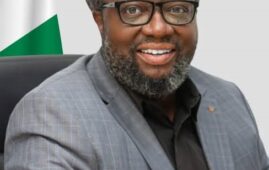At the 46th session of the United Nations Human Rights Council (UNHRC) that concluded on March 24, a few countries in the west were condemned by a large number of international organizations and developing countries for infringing human rights, though these western countries themselves have been taking human rights as a weapon to slander and attack others.
This fully proved that there is no such thing as a “lighthouse for human rights,” and the world neither welcomes nor needs the so-called“lecturers in human rights.”
Pretending to be “lecturers in human rights,” these western countries always point fingers at and even accuse other countries of human rights issues. However, their own poor records of human rights protection will never be covered no matter how hard they try to smear others.
During the general debate on the implementation of the Durban Declaration and Programme of Action on March 19, UN High Commissioner for Human Rights Michelle Bachelet, together with many countries, criticized racism and racial discrimination in some western countries.
Ten months after the killing of George Floyd set off new waves of outrage and demands for change across the world, a key trial related to his killing is now beginning.
She pointed out that a key trial related to the killing of George Floyd didn’t began until 10 months after his death, and many cases involving deaths of people of African descent never made it to court. Families of victims believe that relevant departments of the U.S. were not doing enough to dismantle systemic racism in law enforcement.
Police brutality in the U.S. also triggered serious concern of the world. Statistics indicate that from January to November last year, only 17 days passed without anyone being killed by the U.S. law enforcement. At the session, nearly 20 UN High Commissioner for Human Rights called on the U.S. government to take broad reform measures, so as to end police brutality and resolve systematic racism and racial discrimination.
Some western countries have long aroused strong dissatisfaction among the international community for practicing interventionism in the name of human rights protection and causing massive humanitarian disasters.
Since 2001, the U.S. has carried out so-called anti-terrorism operations in 80-plus countries around the world. More than 800,000 people, including 335,000 civilians, have died from direct war violence and tens of millions of people have been displaced. Today, about 21 million people in Afghanistan, Iraq, Syria and other countries are still displaced or living in extreme conditions.
When attending the Adoption of the Outcomes of the Universal Periodic Review of the U.S. on March 17, developing countries condemned U.S. armed interventions that resulted in serious humanitarian crises. In a joint statement, China, Russia, Syria, Iran, Cuba, Belarus, Venezuela, Bolivia, Sri Lanka, the Philippines, Laos, Cambodia, Zimbabwe and North Korea all criticized relevant western countries that seriously infringed human rights with unilateral coercive measures, and urged them to stop these measures. These western countries should carefully listen to the voice of justice from developing countries.
Human rights are not a privilege of a few countries, or a tool to pressure other countries and interfere in their domestic affairs. Standing at the moral high ground and pointing fingers at other countries under the disguise of human rights only reveals the hegemonic thinking of some western countries, as well as their increasing panic when facing the major changes in the international landscape.
During the 46th session of the UNHRC, Pakistan, on behalf of the Organisation of Islamic Cooperation, opposed the discriminative measures adopted by some European countries against the Muslim community, and condemned the European countries that released cartoons that slandered religious personnel in the name of freedom of speech; Iran expressed concerns over the hate speeches against Muslims by mainstream media outlets in Europe; Egypt introduced the serious discrimination received by people of African descent and Muslims in some European countries.
By opposing western double standard, these developing countries are making a voice of justice on human rights issues.
Curtains have been brought down for the dramas put on by some “lecturers in human rights” from the west. Their hypocrisy is no secret.
These “lecturers” had better stop taking human rights as a tool to achieve hegemony and take a look at their own human rights problems. They shall enhance dialogue and cooperation based on mutual respect, and make some real contributions to the healthy development of global human rights protection.
(Zhong Sheng is a pen name often used by People’s Daily to express its views on foreign policy.)










Leave a Comment